June 9, 2022
The Honorable Jim McGovern
Chairman
House Rules Committee
Washington, D.C. 20515
The Honorable Tom Cole
Ranking Member
House Rules Committee
Washington, D.C. 20515
Dear Chairman McGovern and Ranking Member Cole:
On behalf of the American Bankers Association and state bankers associations from every state in the country, we ask that you reject the inclusion of the credit union charter enhancement bill H.R. 7003 (the Expanding Financial Access for Underserved Communities Act of H.R. 7003) in H.R. 2543 (the Financial Services Racial Equity, Inclusion, and Economic Justice Act).
H.R. 7003 is a self-serving piece of credit union legislation masquerading as a financial inclusion initiative. The bill expands field of membership and commercial lending authority for taxexempt credit unions, two of the industry’s long-standing political priorities, by claiming those charter enhancements would improve access to financial services in underserved areas.
However, this legislation does not deliver on the purported objective of improving banking access nor does it address the needs of underserved communities. It instead should be seen for what it is: a pretext for charter enhancement at ongoing cost to taxpayers.
The absence of Community Reinvestment Act requirements on credit unions in this legislation is extremely troubling. Any sincere effort to improve financial inclusion through credit unions must include comparable mechanisms to ensure accountability. This is especially urgent since credit unions are receiving a tax subsidy to serve the underserved. Credit unions regularly tout their commitment to low- and moderate-income communities, so they should welcome the opportunity to demonstrate that taxpayer dollars are being spent as intended.
There is simply no justification or need for this legislation. Community credit unions can already serve underserved areas if they identify a local need and choose to do so. Although by statute, only “well-defined local communities” can be the basis of a community credit union’s membership, remarkably, there are multiple regulatory paths for a credit union to add multi-state areas to their membership and count that as a “local” community. Without this legislation, a community credit union can already choose to focus on any area, underserved or not, inside those expansive spaces.
The legislation also creates a major and highly controversial new loophole in the credit union business lending cap, which Congress rightly put in place to keep this tax-exempt industry focused on its specified mission of “meeting the credit and savings needs of consumers… through an emphasis on consumer rather than business loans.” (Senate Banking Committee Report 105- 193) (emphasis added). Bankers remain staunchly opposed to any effort to weaken that important limitation.
Expanding financial access to underserved communities is an important and shared goal. Loosening credit union membership criteria under the guise of financial inclusion and without appropriate consumer protections, however, is not. We strongly urge you to strip H.R. 7003 from H.R. 2543.
Sincerely,
American Bankers Association
Alabama Bankers Association
Alaska Bankers Association
Arizona Bankers Association
Arkansas Bankers Association
California Bankers Association
Colorado Bankers Association
Connecticut Bankers Association
Delaware Bankers Association
Florida Bankers Association
Georgia Bankers Association
Hawaii Bankers Association
Idaho Bankers Association
Illinois Bankers Association
Indiana Bankers Association
Iowa Bankers Association
Kansas Bankers Association
Kentucky Bankers Association
Louisiana Bankers Association
Maine Bankers Association
Maryland Bankers Association
Massachusetts Bankers Association
Michigan Bankers Association
Minnesota Bankers Association
Mississippi Bankers Association
Missouri Bankers Association
Montana Bankers Association
Nebraska Bankers Association
Nevada Bankers Association
New Hampshire Bankers Association
New Jersey Bankers Association
New Mexico Bankers Association
New York Bankers Association
North Carolina Bankers Association
North Dakota Bankers Association
Ohio Bankers League
Oklahoma Bankers Association
Oregon Bankers Association
Pennsylvania Bankers Association
Puerto Rico Bankers Association
Rhode Island Bankers Association
South Carolina Bankers Association
South Dakota Bankers Association
Tennessee Bankers Association
Texas Bankers Association
Utah Bankers Association
Vermont Bankers Association
Virginia Bankers Association
Washington Bankers Association
West Virginia Bankers Association
Wisconsin Bankers Association
Wyoming Bankers Association
cc: Members of the House Rules Committee
Members of the U.S. House of Representatives
